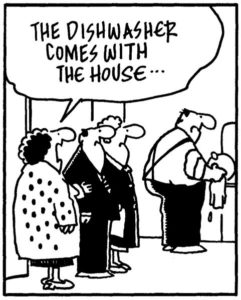Q: I have two issues with the tenant. One is nonpayment of rent, and the other is occupancy by others stated in the lease and an unauthorized pet. May I serve a three day notice to pay rent or quit and a three day notice to cure breach or quit at the same time?
A: Yes. You have to separate violations that need to be taken care of: 1) the failure to pay rent, and 2), curtailing the over-occupancy and removing the pet. As two separate and distinct violations, the two three day notices could be served simultaneously to address each issue. In order to maintain tenancy, the tenant would have to comply with both notices within the three day period. Payment of rent cures the three day notice to pay rent or quit but does not cure the over-occupancy notice. If necessary, an unlawful detainer could be filed on one or both of the notices.
Q: How about serving a sixty day notice and a three day notice to pay rent or quit at the same time?
A: Do not do that. The combination of a sixty day and three day together is different than the question above. That was two three day notices served simultaneously. This, however, is a sixty day and a three day notice to pay rent or quit served together. The two, read together, are ambiguous. One makes it clear they are to be out; the other gives the impression that if you pay, you may stay. That is why we recommend serving one first, then the other, but don’t serve these two notices together. Pick the one you want to go with first and then, only if necessary, follow a few days later with the other.
Q: The guarantor, the tenant’s father, signed a guaranty agreement. The lease has now expired and converted to month-to-month. He claims he is no longer responsible. Is that true?
A: No. The standard guaranty agreement covers the lease and any extended periods. When the lease rolled to month-to-month, the guarantor did, indeed, remain jointly and severally responsible along with the named tenant for payment of rent.
Q: The sex offender openly admits his status during the screening process. In an unusual twist, he and his wife confirm the wife was the victim of his rape many years ago. They made up and later got married. Would his marriage to the former victim, now his wife, terminate his status as a registered sex offender? May I legally reject their application solely by virtue of the fact that he is still a registered sex offender?
A: No to both questions. Under a specific California law, you may not deny rental to the applicant just because he is a registered sex offender. The law is that, although he ended up marrying his victim, the registration as a sex offender carries on. His marriage to the victim is irrelevant. Of course, he is not entitled to special treatment and needs to qualify, just like everybody else, as to rental history, credit, and income. Caution: As a matter of practice, you should not go on the sex offender website at all during the resident screening process.
Q: Our apartment community has a process for sending out lease renewal options towards the end of the initial term. For example, we have various prices for a one-year renewal, sixth months, and month-to-month. If the resident does not respond to any of the options. The language is to revert the lease to month-to-month. That increase would be more than 10% of the lease rate. Does that notice have 10 be more than 60 days out, and, is the lease renewal notice indicating the month-to-month rate as one of three options legal service of the notice of rental increase?
A: The answer to both questions is yes. Since the resident has not responded to any of the options, the language reverts the lease to month-to-month. In this case, the resident has not selected either a one-year or a six-month lease. This means that the month-to-month option, by default is accepted. And because of that, it is a sufficient notice of the rental increase for the month-to-month tenancy rate. Failure to pay the month-to-month rate upon expiration of the lease will result in a three day notice to pay rent or quit at the month-to-month rate.
Q: Payment Allocation. My resident picks and chooses how he wants partial payments to be credited against an ongoing balance of accruing rent and late charges. She insists that credit should be given during the months received leaving, an old balance due, is she right?
A: No. The standard rental property accounting principle is to apply all payments to the oldest rent and related charges first, then carry the balance forward on a running account. When doing this, you need to clarify his intention, given the receipt for the oldest balance first. I recommend wording in all leases so that there is no misunderstanding on payment credits that goes like this: Lessor may apply any payment made by lessee to any obligation of a NFC notwithstanding any days or other direction from a NFC which accompanies any such payment. Said payment will be applied to oldest charges first, including late charges, older rent, late charges and current rent. Any attempt by lessee to allocate payment any other way, either be Mello, on the check, or restrictive endorsement, shall be null and void.”
Q: I want the tenant out. How about serving a 60-Day Notice on a month-to-month tenancy and a Three-Day Notice to Pay the now due rent at the same time?
A: Do not do that. A combination of a 60-Day and a Three-Day served together, makes the two of them ambiguous. When a Three-Day Notice is served simultaneously with a 60-Day Notice, the message the Three-Day carries with it is, if you pay, you may stay. You’re looking at the Sixty Day Notice, it says get out period. So the two read together are ambiguous. One makes it clear that they ought to be out, the other gives the impression that if they pay, they may stay. That is why we recommend serving one first, then the other. Pick which one you want to go to first, and then, only if necessary, follow with the other notice a few days later.

